Hyundai unveils i40 saloon
Hyundai has taken the wraps off its i40 mid-size saloon. The new model’s debut, at the Barcelona Motor Show, follows the unveiling of the i40 estate at Geneva back in March.
Styled and engineered by Hyundai at its facility in Rüsselsheim, Germany, the i40 develops the ‘fluidic sculpture’ design language first seen on the ix-onic concept car. This is meant to endow the car with ‘flowing lines inspired by nature which combine to create a dynamic exterior’, although the result has ended up bearing more than a passing resemblance to the Ford Mondeo.
There’ll be a choice of two petrol and two diesel engines, with the latter unsurprisingly expected to account for around two-thirds of sales in Europe. As per normal nowadays, they come with various devices designed to improve fuel economy and reduce emissions such as stop-start, an intelligent alternator and low rolling resistance tyres.
With sales not due to begin until the fourth quarter of 2011, exact specifications and prices have yet to be confirmed. However, Hyundai is promising that plenty of kit will be available including Bluetooth, parking assistance, a rear view camera, full-screen navigation and a lane departure warning system.
One inescapable issue for the UK market is that the i40 is a saloon, rather than a hatchback. Whether Hyundai’s decision to opt for that body style hurts sales remains to be seen.
 |
| Hyundai i40. Scroll down for more images. |
Styled and engineered by Hyundai at its facility in Rüsselsheim, Germany, the i40 develops the ‘fluidic sculpture’ design language first seen on the ix-onic concept car. This is meant to endow the car with ‘flowing lines inspired by nature which combine to create a dynamic exterior’, although the result has ended up bearing more than a passing resemblance to the Ford Mondeo.
There’ll be a choice of two petrol and two diesel engines, with the latter unsurprisingly expected to account for around two-thirds of sales in Europe. As per normal nowadays, they come with various devices designed to improve fuel economy and reduce emissions such as stop-start, an intelligent alternator and low rolling resistance tyres.
| Hyundai i40 saloon engine specifications | |
|---|---|
| 1.6 litre 135 PS Petrol | |
| Type | Gamma GDI, four-cylinder, 16-valve with MLA |
| Capacity | 1,591 cc |
| Power | 133 bhp (99 kW / 135 PS) @ 6,300 rpm |
| Torque | 164 Nm (120 lb/ft) @ 4,850 rpm |
| Emissions | 149 g/km (140 g/km with stop-start) |
| Fuel consumption | 47.0 mpg (6.0 l/100km) |
| 0-100 km/h (62 mph) | 11.6 secs |
| Top speed | 121 mph (195 km/h) |
| 2.0 litre 177 PS Petrol | |
| Type | Nu GDI, four-cylinder, 16-valve with HLA & Swing ARM |
| Capacity | 1,999 cc |
| Power | 174 bhp (130 kW / 177 PS) @ 6,500 rpm |
| Torque | 208 Nm (153 lb/ft) @ 4,700 rpm |
| Emissions | 156 g/km |
| Fuel consumption | 41.5 mpg (6.8 l/100km) |
| 0-100 km/h (62 mph) | 9.7 secs |
| Top speed | 130 mph (210 km/h) |
| 1.7 litre 115 PS Diesel | |
| Type | U-II, DOHC, four-cylinder, 16-valve with HLA |
| Capacity | 1,685 cc |
| Power | 113 bhp (85 kW / 115 PS) @ 4,000 rpm |
| Torque | 260 Nm (191 lb/ft) @ 1,250-2,750 rpm |
| Emissions | 122 g/km (113 g/km with stop-start) |
| Fuel consumption | 65.6 mpg (4.3 l/100km) |
| 0-100 km/h (62 mph) | 12.9 secs |
| Top speed | 118 mph (190 km/h) |
| 1.7 litre 136 PS Diesel | |
| Type | U-II, DOHC, four-cylinder, 16-valve with HLA |
| Capacity | 1,685 cc |
| Power | 134 bhp (100 kW / 136 PS) @ 4,000 rpm |
| Torque | 325 Nm (239 lb/ft) @ 2,000-2,500 rpm |
| Emissions | 124 g/km (119 g/km with stop-start) |
| Fuel consumption | 62.7 mpg (4.5 l/100km) |
| 0-100 km/h (62 mph) | 10.6 secs |
| Top speed | 123 mph (198 km/h) |
| All figures are manufacturer’s estimates; final figures to be confirmed at launch. | |
With sales not due to begin until the fourth quarter of 2011, exact specifications and prices have yet to be confirmed. However, Hyundai is promising that plenty of kit will be available including Bluetooth, parking assistance, a rear view camera, full-screen navigation and a lane departure warning system.
One inescapable issue for the UK market is that the i40 is a saloon, rather than a hatchback. Whether Hyundai’s decision to opt for that body style hurts sales remains to be seen.

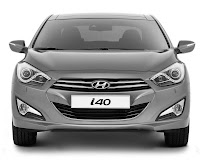

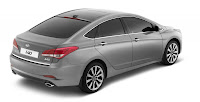
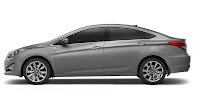
+Front+Side.jpg)

%2BFront%2BSide.jpg)
+Front+Side+1.jpg)

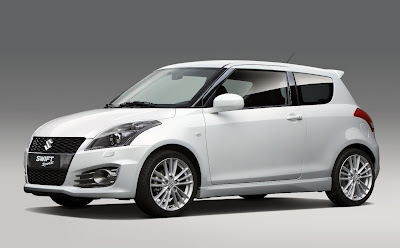
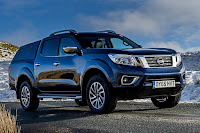
Comments
Post a Comment